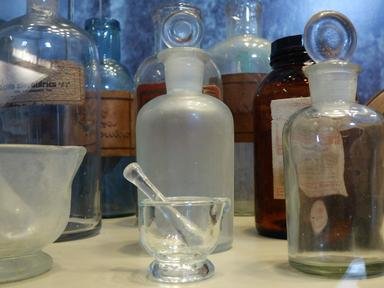Quiz Answer Key and Fun Facts
1. Gold is a very inert metal so it does not react with most chemical substances. Aqua regia is one of the very few substances that can dissolve gold. Which two acids make up this solution?
2. Pure gold is non-toxic.
3. Due to its great physical resemblance to gold, pyrite is also known as the fool's gold. Which two elements make up pyrite?
4. The Latin name for silver is argentum. Is it true that argentum is mixed with mercury to produce amalgams that are used in dental fillings?
5. Both gold and silver belong to which classification group in the periodic table of chemical elements?
6. Two silver compounds play an important role in the photography industry. One of them is silver halide. What is the other one?
7. Aluminum bronze is known for which special property?
8. You are given a piece of metal that contains gold, silver and other metals. By adding in aqua regia, gold and other metals will dissolve in the solution. On the other hand, what happens to silver?
9. Electrum is a naturally occurring alloy that is made up of ___.
10. Are gold, silver and bronze all elements?
Source: Author
Matthew_07
This quiz was reviewed by FunTrivia editor
crisw before going online.
Any errors found in FunTrivia content are routinely corrected through our feedback system.

